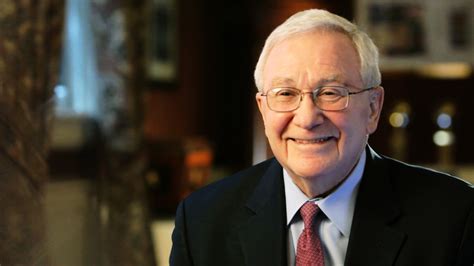A Quote by Harold Bloom
Aesthetic value emanates from the struggle between texts: in the reader, in language, in the classroom, in arguments within a society. Aesthetic value rises out of memory, and so (as Nietzsche saw) out of pain, the pain of surrendering easier pleasures in favour of much more difficult ones ... successful literary works are achieved anxieties, not releases from anxieties.
Related Quotes
Originality is another criterion of aesthetic value. We may formulate an originality principle, according to which highly valuable works of art provide hitherto unavailable insights.... Notice that, although originality is a necessary condition of high aesthetic value, it is far from a sufficient condition. Many original works have little or no aesthetic value. An artwork may present a novel but uninteresting perspective, or one that is original but wrong.
But pain may be a gift to us. Remember, after all, that pain is one of the ways we register in memory the things that vanish, that are taken away. We fix them in our minds forever by yearning, by pain, by crying out. Pain, the pain that seems unbearable at the time, is memory's first imprinting step, the cornerstone of the temple we erect inside us in memory of the dead. Pain is part of memory, and memory is a God-given gift.
The idea of some kind of objectively constant, universal literary value is seductive. It feels real. It feels like a stone cold fact that In Search of Lost Time, by Marcel Proust, is better than A Shore Thing, by Snooki. And it may be; Snooki definitely has more one-star reviews on Amazon. But if literary value is real, no one seems to be able to locate it or define it very well. We're increasingly adrift in a grey void of aesthetic relativism.
When we consider the close connection between science and industrial development on the one hand, and between literary and aesthetic cultivation and an aristocratic social organization on the other, we get light on the opposition between technical scientific studies and refining literary studies. We have before us the need of overcoming this separation in education if society is to be truly democratic.
Jesus, I wondered, what do you do with pain so bad it has no redeeming value? It cannot even be alchemized into art, into words, into something you can chalk up to an interesting experience because the pain itself, its intensity, is so great that it has woven itself into your system so deeply that there is no way to objectify or push it outside or find its beauty within. That is the pain I’m feeling now. Its so bad, its useless. The only lesson I will ever derive from this pain is how bad pain can be.
There is a sinister anachronistic interpretation of the aesthetic state as some kind of totalitarian regime that puts aesthetic over moral standards; one associates it with national-socialism. But this has nothing to do with the romantics, whose ideal of the aesthetic state has much more to do with the republican tradition.
Stress does not cause pain, but it can exacerbate it and make it worse. Much of chronic pain is 'remembered' pain. It's the constant firing of brain cells leading to a memory of pain that lasts, even though the bodily symptoms causing the pain are no longer there. The pain is residing because of the neurological connections in the brain itself.
Successful companies create value by providing products or services their customers value more highly than available alternatives. They do this while consuming fewer resources, leaving more resources available to satisfy other needs in society. Value creation involves making people's lives better. It is contributing to prosperity in society.
The best programs are written so that computing machines can perform them quickly and so that human beings can understand them clearly. A programmer is ideally an essayist who works with traditional aesthetic and literary forms as well as mathematical concepts, to communicate the way that an algorithm works and to convince a reader that the results will be correct.
These are things that only dogs and women understand because we tap into the pain directly, we connect to pain directly from its source, and so it is at once brilliant and brutal and clear, like white-hot metal spraying out of a fire hose, we can appreciate the aesthetic while taking the worst of it straight in the face. Men, on the other hand, are all filters and deflectors and timed release.



































